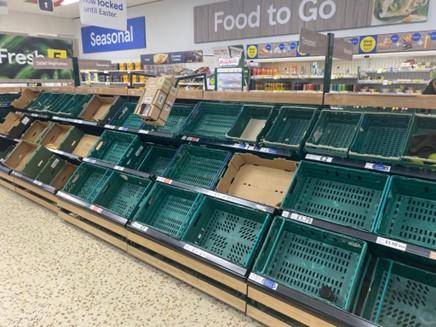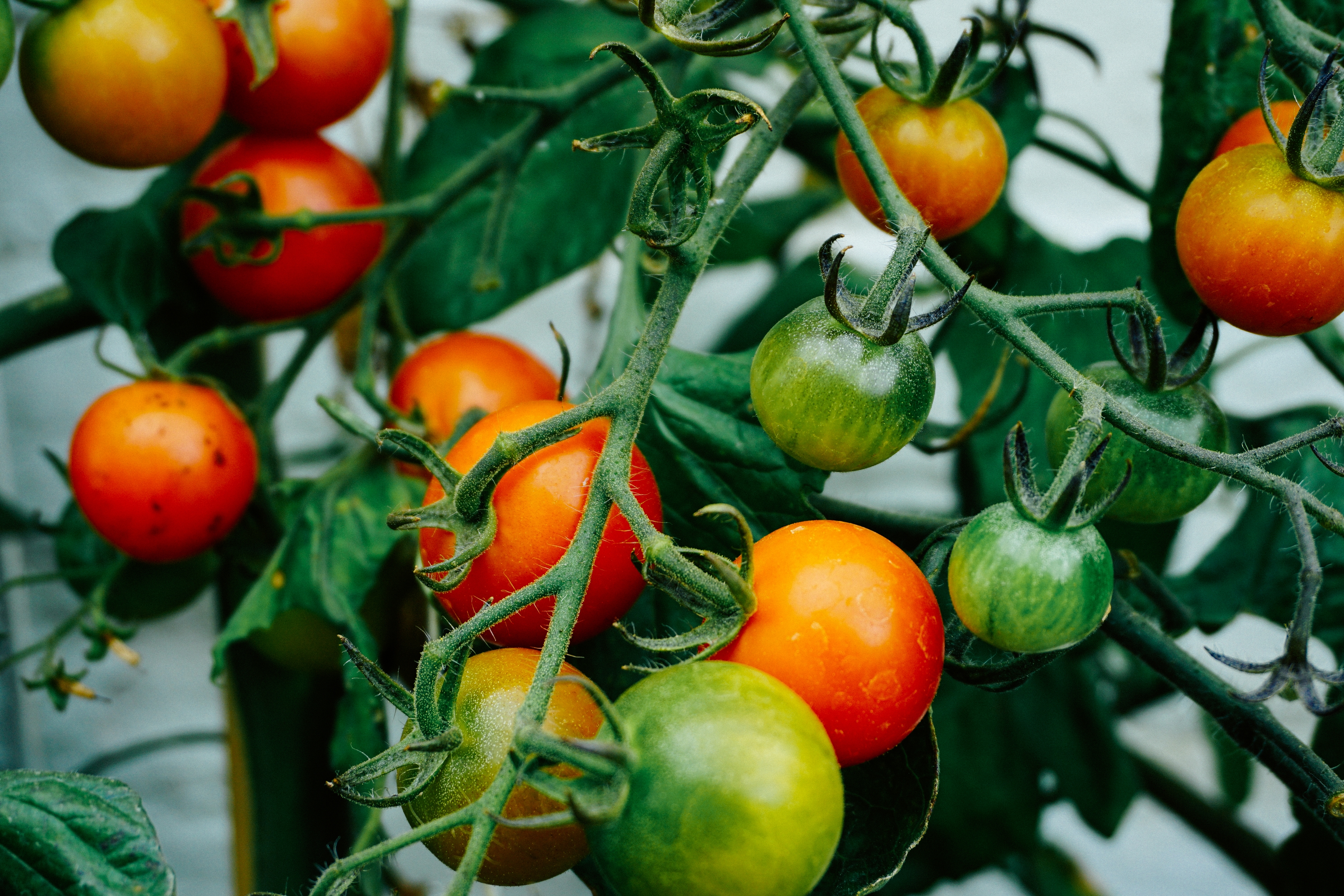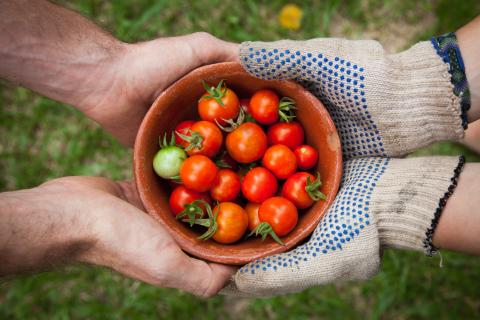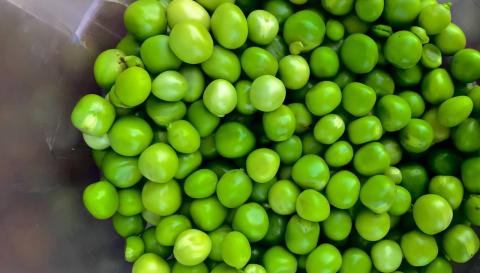24 February 2023
Fruit and veg shortages – what do they tell us about the state of UK food security?

If you've set foot in a supermarket in the last few days you may have noticed fresh produce shelves looking distinctly bare. You might have been told you can only buy a limited number of items such as broccoli, raspberries, cauliflower, and lettuces. If you were hoping to get your hands on products like peppers and tomatoes, you may have even left empty-handed.
Fruit and vegetable shortages, which are affecting the UK and are expected to last several weeks, have cast a new spotlight on the fragility of the UK’s food security with the climate vulnerability of the UK’s fruit and vegetable supply chains brought to the fore.
The UK market currently imports 47% of vegetables and 84% of fruit with an increasing percentage of these from areas defined as climate vulnerable. Researchers from the SHEFS (Sustainable and Healthy Food Systems) research group found that 54% of imported fruit and vegetables in 2013 were from countries likely to face high to extremely high water scarcity in the near future (by 2040) – a 32% increase since 1987. In addition, almost a third (32%) of imports of fruit and vegetables in 2013 were from areas defined as climate vulnerable - a 60% increase since 1987.
At this time of year, Spain and North Africa would usually provide a significant proportion of our fruit and veg imports, but extreme weather in these regions has affected harvests. Inflationary energy costs and Brexit-related supply chain challenges have meant The Netherlands, usually our fall-back supplier, hasn’t been able to provide for us either. On top of this, a cold spell in the UK before Christmas damaged field crops resulting in particularly low home-grown supplies of cabbages, carrots and cauliflowers. UK and European growers have also been struggling with the rising cost of energy and fertiliser as a result of the Ukraine-Russia war.
Shortages like these could become a regular occurrence as extreme weather events become the norm, and the UK’s food security resilience is set to become further compromised as British producers choose to plant fewer crops amid soaring energy costs, surges in the price of fertiliser and packaging and ongoing labour shortage issues.
Tomato producer APS group, responsible for just under a third of UK tomato production, reportedly left 8% of their glasshouses empty last year as it could not afford to run the LED lights for their winter tomato crop - a unique occurrence in their 80-year history. Earlier this week at the National Farmers Union conference, president Minette Batters criticised the absence of the horticulture sector in the government's support scheme for energy intensive industries, warning that the clock is ticking on protecting homegrown food supply.
Fruit and veg prices are expected to increase over the coming weeks – this on top of inflationary food price rises of 16.9% in the 12 months to December 2022. This is particularly worrying for households on low incomes who are already struggling to put food on the table during the cost-of-living crisis. Price rises on fresh produce will put further strain on peoples’ ability to afford a healthy diet.
So, what can be done? The Food Foundation's fruit and vegetable policy briefing series explores the potential positive health, environmental, economic and biodiversity impacts of increasing fruit and vegetable production and consumption in the UK.

The final briefing in the series, published last month, proposes policy options for increasing UK fruit and veg production and consumption. One of the key recommended priorities for policymakers is boosting our domestic fruit and veg supply to stimulate and meet greater consumer demand and to ensure that the UK’s fruit and vegetable supply chains are not unsustainably dependent on imports from countries likely to experience future climate and water stress.
This process could be kick-started by the delivery of a sufficient Horticulture Strategy For England (which was committed to in last years’ Government Food Strategy. The Horticulture Strategy ought to support production volumes to sustainably increase by at least 30% by 2032 to match the 30% required growth in consumption levels of fruit and veg (recommended in Henry Dimbleby’s National Food Strategy, 2021). In parallel to this, action by policymakers is needed to create a food environment in which is it easy and attractive for people to choose to eat more fruit and vegetables, and to address the financial and practical barriers that prevent many from doing so.
Rebecca Tobi, Peas Please Project Manager, said: "Unless the Government act to ensure the food system is a part of any Net Zero strategy, we can expect to see similar shortages happening again and again as extreme weather patterns become the norm.
"Another issue here is the impact rising energy prices are having on growers – British farmers have been warning for months that the cost of growing fruit and veg is rapidly becoming a threat for supply chains.
"Given that most of us aren’t eating enough fruit and veg in the first place, with just one third of adults getting their 5-a-day, this is concerning given that shortages could drive up prices.
"We know that low-income families are already reporting having to cut back on how much fruit and veg they’re buying. These shortages and any resulting price rises will only make it even harder for many to access and afford fruit and veg.
"The forthcoming new horticulture strategy for England should look to support a thriving fruit and veg sector as a part of improving food security and the nation’s health."
https://www.bbc.co.uk/news/business-64729317
https://foodfoundation.org.uk/initiatives/food-insecurity-tracking
https://foodfoundation.org.uk/news/food-prices-tracker-january-2023
https://foodfoundation.org.uk/news/our-priorities-national-food-strategy
About SHEFS:
The fruit and vegetable policy briefings series is based on research conducted by Sustainable and Healthy Food Systems (SHEFS), a global research programme using novel techniques to generate and synthesise evidence and help decision-makers create policies that deliver nutritious and healthy diets in an environmentally sustainable and socially equitable manner.





